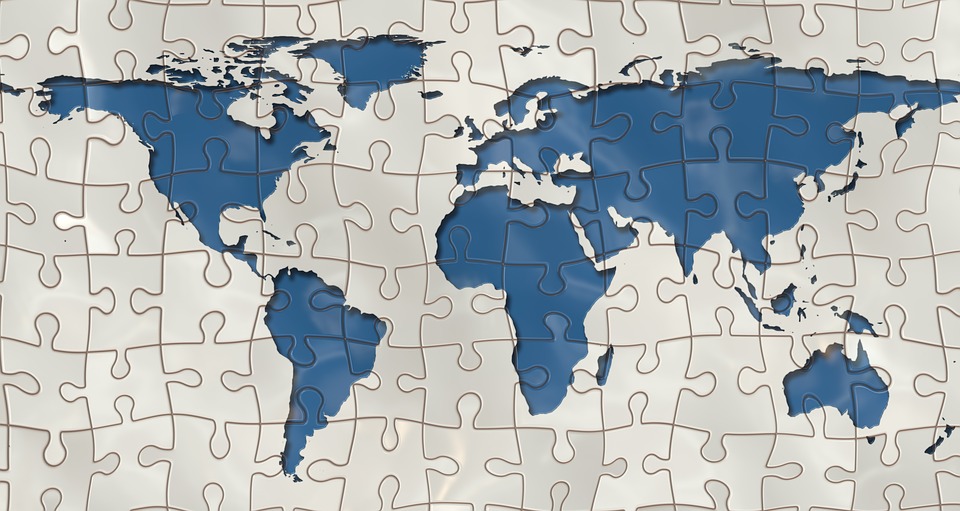Globalization is the reason the coronavirus spread so rapidly around the globe. But can it also be its solution?
In the spring of 2020, the world is as small as it has never been before. It is extraordinarily easy for us to be in contact with our friends on the other side of the globe. We order clothes or electronics online without really paying attention to where it will be shipped from. Never was traveling so cheap, postal services so fast and communication so uncomplicated. Trade agreements, open borders and the almost limitless stream of capital make all that possible.
The ideological origin of free trade and globalization can be found in the countermovement to 15th Century mercantilism. With his paper “The Wealth of Nations”, Adam Smith argued that free trade and global division of labor is key for an overall rise in prosperity. Following this idea, the world has become astonishingly connected only two centuries later. Air traffic between the African continent and China grew sevenfold in the past ten years and the trade of goods between the EU and China equals the economic output of countries the size of Taiwan, Poland or Sweden. Over a hundred years after Smith, Charles Taze Russell wrote: “The civilized people are no longer strangers in any part of the earth. […] Magnificent railway coaches introduce them to the interior lands, and they return home laden with information, and with new ideas, and awakened to new projects and enterprises.”
And Russel was to be proved right. Only that in this case, we did not bring home information, new ideas or enterprises, but a novel virus. A virus that is not as deadly as those of other pandemics, but that spreads even faster. In March and April of this year, it has even been able to bring the world to a standstill. Stock markets were tumbling, enterprises still have to grapple with bankruptcy and health systems all over the globe are about to collapse. Since the first case of the virus became public in the Chinese province of Hubei in December last year, scientists and economists tried to figure out how the virus could spread so rapidly over the whole globe. And the answer is equally easy and challenging for liberals like us: it’s globalization’s fault.
While we are desperately looking for coping strategies to tackle the virus in Germany, leaders with autocratic tendencies such as Trump, Orbán or Duda are rubbing their hands with glee. They have also recognized that the crisis can be easily misused to extend their power. Their often-used narrative of safety and sovereignty through closed borders seems to be an effective measure to efficiently flatten the curve and to avoid exponential growth. Thus, they are operating in effect, weakening democratic processes and governing by decree. They declare COVID-19 a national issue, although it never was a national problem.
All of them either ignore or do not want to admit that global problems can solely be solved on a global level. Especially because the spread of the virus is rather a regional than a national phenomenon, closing national borders cannot be the best solution to solve the crisis. The impact closed borders might have on the European Union is already foreseeable in German agricultural businesses. Workers from Eastern Europe who would usually help out in the asparagus harvest are neither allowed to leave their country nor to enter Germany. Furthermore, supply chains or transport routes are interrupted or even blocked. This is not only damaging the German export industry but also cohesion within the European Union.
The Israeli historian and bestseller author, Yuval Noah Harari, pointed out in a recently published article: „The […] important choice we confront is between nationalist isolation and global solidarity. Both the epidemic itself and the resulting economic crisis are global problems. They can be solved effectively only by global co-operation.“ This might sound trivial, but in times like these it is still worth mentioning. In the last couple of weeks, politicians increasingly and almost naturally talked about the limitation of civil rights, the closing of borders or protectionist trade measures. This is why it is even more important that we firmly oppose these – partially impetuous – steps in order to stand up for our own freedom and the freedom of our fellow Europeans. Because for now, it is still unclear whether autocracy and nationalism will flourish in Europe again or whether the imposed measures can be reversed. This is especially interesting with regard to the upcoming elections in both the USA and Poland. Trump and Duda can now prove their so-often claimed abilities as strong leaders. The cameras and microphones are already directed at them – let the show begin!
What implications the crisis might have for the federal system in Germany and the subsidiarity within the European Union remains to be seen. However, it is clear that we need centralist decision-making power that must be somewhere beyond Berlin or Brussels. Pooling expertise and competencies does not automatically lead to a loss of sovereignty. Almost no one was prepared for such a crisis and this is why we need to strengthen public institutions and structures even more to act decisively and powerfully in the future. The global division of labor will not be reversed. It is much more about recognizing connections to other countries or regions as an opportunity rather than a threat. We must also remember that a globalized and connected world is not just facilitating prosperity but is equally ensuring peace and safety.
Perhaps such an extension of supranational cooperation will prepare us for upcoming crises and challenges. Because one thing is for sure: once we overcome the corona crisis, other threats will lay ahead for us that demand an even greater degree of cohesion and cooperation.
You can read more on the topic in this article.

